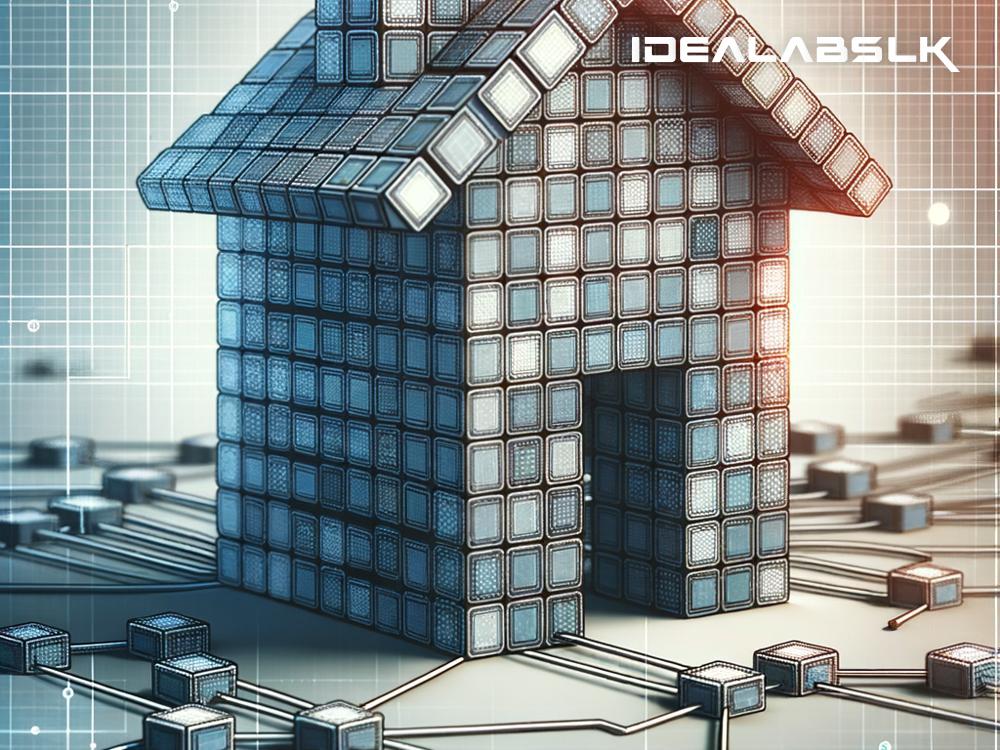Blockchain for Improving Real Estate Transparency
In an era where technology touches nearly every aspect of our lives, the real estate sector is experiencing a transformative shift, thanks to a not-so-new kid on the block: Blockchain. This innovative technology, often associated with cryptocurrencies like Bitcoin, is making waves in various industries by providing more secure and transparent transactions. But how exactly does blockchain stand to revolutionize the real estate world? Let's dive into a simple explanation of blockchain technology and explore its potential to enhance transparency in real estate transactions.
Understanding Blockchain in Simple Terms
At its core, blockchain is a digital ledger that records transactions across several computers in such a way that the registered transactions cannot be altered retroactively. Think of it as a chain of digital “blocks.” Each block records a number of transactions, and once completed, the block is added to the chain in a linear, chronological order. This creates a permanent and unchangeable history of all transactions.
The beauty of blockchain lies in its transparency and security. Since every transaction is recorded and confirmed by a network of computers (instead of a single central authority), it becomes nearly impossible to hack or cheat the system. This decentralized nature of blockchain is what makes it so appealing for numerous applications, real estate included.
Transforming Real Estate with Blockchain
Real estate transactions are notoriously complex, often involving multiple steps and parties, such as buyers, sellers, brokers, lawyers, and banks. This complexity can sometimes make the process opaque, opening doors to fraud, errors, and inefficiencies.
Blockchain technology promises to address these issues head-on by providing a transparent and efficient platform for all parties involved. Here’s how:
1. Enhanced Transparency: Blockchain's open ledger allows every transaction to be recorded and verified by all parties in real time. This transparency helps reduce fraud and errors, as every change is traceable and permanent. Imagine buying a house and being able to see the entire history of the property, including previous sales and any disputes, in a secure and unalterable format.
2. Streamlined Transactions: Real estate transactions involve mountains of paperwork and verification steps that can be streamlined with blockchain. Smart contracts, which are self-executing contracts with the terms directly written into code, automate and enforce the contract terms. This can significantly cut down the time and cost associated with closing deals, making the buying and selling process much faster and smoother.
3. Reduced Costs: By eliminating intermediaries and reducing paperwork, blockchain can lower transaction costs. Traditional fees associated with real estate transactions, such as commissions and loan fees, can be minimized when transactions are carried out directly between parties on a blockchain platform.
4. Improved Security: The decentralized and encrypted nature of blockchain makes it incredibly secure against fraud and hacking. Property titles stored on a blockchain, for example, are safe from being fraudulently altered or duplicated.
While the full integration of blockchain into the real estate sector is still underway, several startups and pilot projects are already exploring its potential. Countries like Sweden and Ukraine are experimenting with putting land registries on a blockchain to enhance security and transparency.
The Road Ahead
Despite its promising applications, the adoption of blockchain in real estate comes with challenges. Regulatory hurdles, the need for a shift in traditional practices, and the technical complexity of blockchain are significant barriers. However, as technology advances and more people become familiar with the benefits of blockchain, these obstacles are likely to diminish.
Blockchain technology holds the key to a more transparent, efficient, and secure real estate sector. By simplifying transactions, reducing costs, and enhancing the integrity of property records, blockchain technology could very well redefine the future of real estate. As we move forward, it's exciting to envision a world where buying or selling a property is as straightforward and transparent as making a purchase online—thanks to the revolutionary potential of blockchain.

